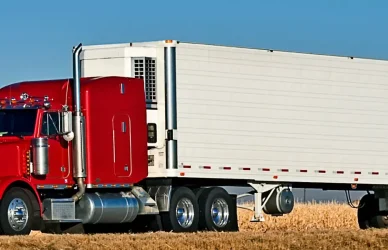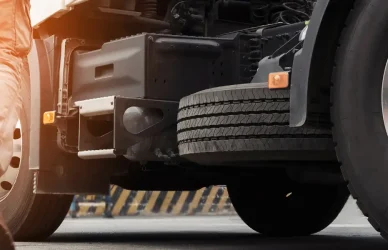Trucking carriers long staffed by mostly male drivers are now looking to get more women behind the wheel, Shera Avi-Tonah reported for Bloomberg. With the industry still facing a decades-old struggle to keep drivers and a shortage of 100,000 drivers on the horizon for 2023, more and more recruiters are targeting women.
Only 6.7 percent of long-haul drivers in 2019 were women, according to the American Trucking Associations. Some nonprofits, trade groups and government programs have begun sponsoring female drivers to get their certifications. A $550 billion infrastructure package currently in Congress includes a provision to study how to recruit more female drivers.
Ellen Voie, CEO of Women in Trucking, told Bloomberg that part of the challenge is changing women’s perspective on truck drivers. Voie said she’s spoken with 400 to 500 recruiters, trucking school operators, and drivers over the past 14 years, encouraging them to train and hire more women.
Voie said female truck drivers are generally more cautious on the road — they get into fewer serious accidents. Still, truck driving often requires long, irregular hours, lonely conditions and a lot of safety risks. And the industry isn’t always friendly to primary caregivers.
Missing “birthdays, anniversaries, holidays, being out here by yourself on Christmas, being out here by yourself on Mother’s Day—these are the things a lot of people aren’t prepared for,” Ingrid Brown, CEO of the North Carolina-based trucking company Rollin’ B LLC, told Bloomberg.
While there’s little data on sexual harassment and assault in the industry, some trucking schools warn female truckers about those concerns before they begin driving. S.H.E founder Sharae Moore reportedly started a 20,000-member Facebook group and licensing program in part to help women entering the industry avoid companies known for tolerating sexual misconduct.
Interstate Trucking Academy owner Gary Hollands runs a free training program for women with lessons on self-defense and dealing with sexual misconduct. Hollands tells students to carry mace and share their stop schedule with a friend.
“How to drive a truck is only one part of our program,” he said. “The main part of the program is how to navigate the culture that they’re going into.”
Jenny Reeves, 47, graduated from Hollands program and told Bloomberg she appreciated how frank the instructors were about what it’s like to be a woman driver. She recently started hauling waste in Portland and said she got so many job interviews after finishing trucking school that she felt like “the trash princess.”
To get hired, “you pretty much just have to have a pulse,” said Real Women in Trucking’s Wood. “What I’d like to see is a path to success.”










